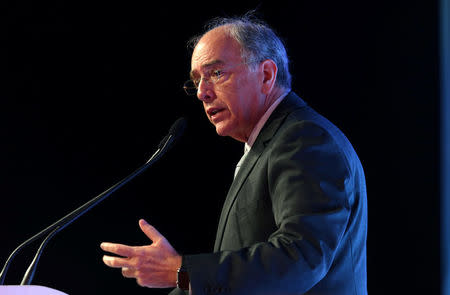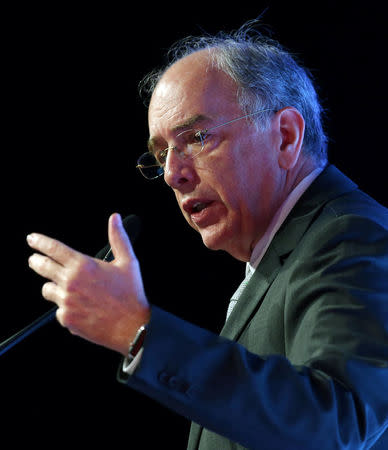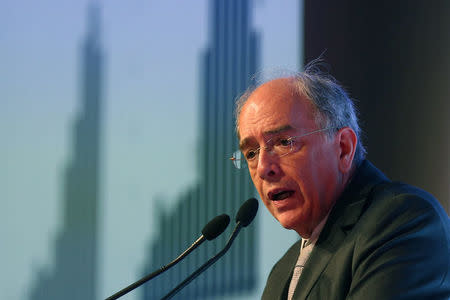Temer says wants to 'vaccinate' Brazil against fiscal populism
By Brad Haynes and Luciano Costa SAO PAULO (Reuters) - Brazilian President Michel Temer said on Friday he wants to "vaccinate" the country against "fiscal populism" with constitutional reform limiting increases in public spending that he expects to be approved by Congress. Temer said without the constitutional reform, Brazil's public debt could reach 100 percent of gross domestic product (GDP) by 2024, and he appealed to business leaders and the media to campaign in favor of its approval. "On taking over the presidency, we had a mission, to inoculate Brazil with a vaccine to make it immune to fiscal populism," he said. The flagship reform, which would limit increases in public spending to below the inflation rate of the previous year, will face its first hurdle in a special commission of the lower house next week. The measure could receive final Congressional approval before the end of October, but investors who have snapped up Brazilian assets on hopes of market-friendly reforms are nervously eying proposals to water down its impact in coming years. In a reminder of the enormous budgetary challenge facing Latin America's largest economy, which lost its coveted investment grade rating last year, data on Friday showed Brazil's primary budget deficit hit a record 22.267 billion reais ($6.88 billion) in August, well above market expectations. [nL2N1C60QB] "Our legislators have an unequivocal commitment with the priorities imposed by the situation of Brazil," said Temer, who officially took power last month when his left-leaning predecessor Dilma Rousseff was impeached. "The origin of this economic crisis was essentially domestic and fiscal," he told a business forum in Sao Paulo. While economists say Brazil's $2 trillion economy could emerge from its worst recession in decades in the final quarter of this year, unemployment in Latin America's largest country is expected to continue rising. Data from statistics agency IBGE showed on Friday the unemployment rate rose to 11.8 percent in the three months through August, slightly above expectations in a Reuters poll. [nL2N1C60KO] Rousseff's Workers Party, which ruled Brazil for 13 years until she was impeached by Congress last month on charges of breaking budget rules, has accused Temer's government of planning to scrap welfare programs that dragged millions of people out of poverty during the previous decade. Temer said that, given the situation in the country, his center-right government would combine budgetary and social responsibility. He said that, with considerable social needs in Brazil, the state had an important role to play in the economy, but one that also recognized the importance of the private sector. (Writing by Daniel Flynn; Editing by Jeffrey Benkoe)



